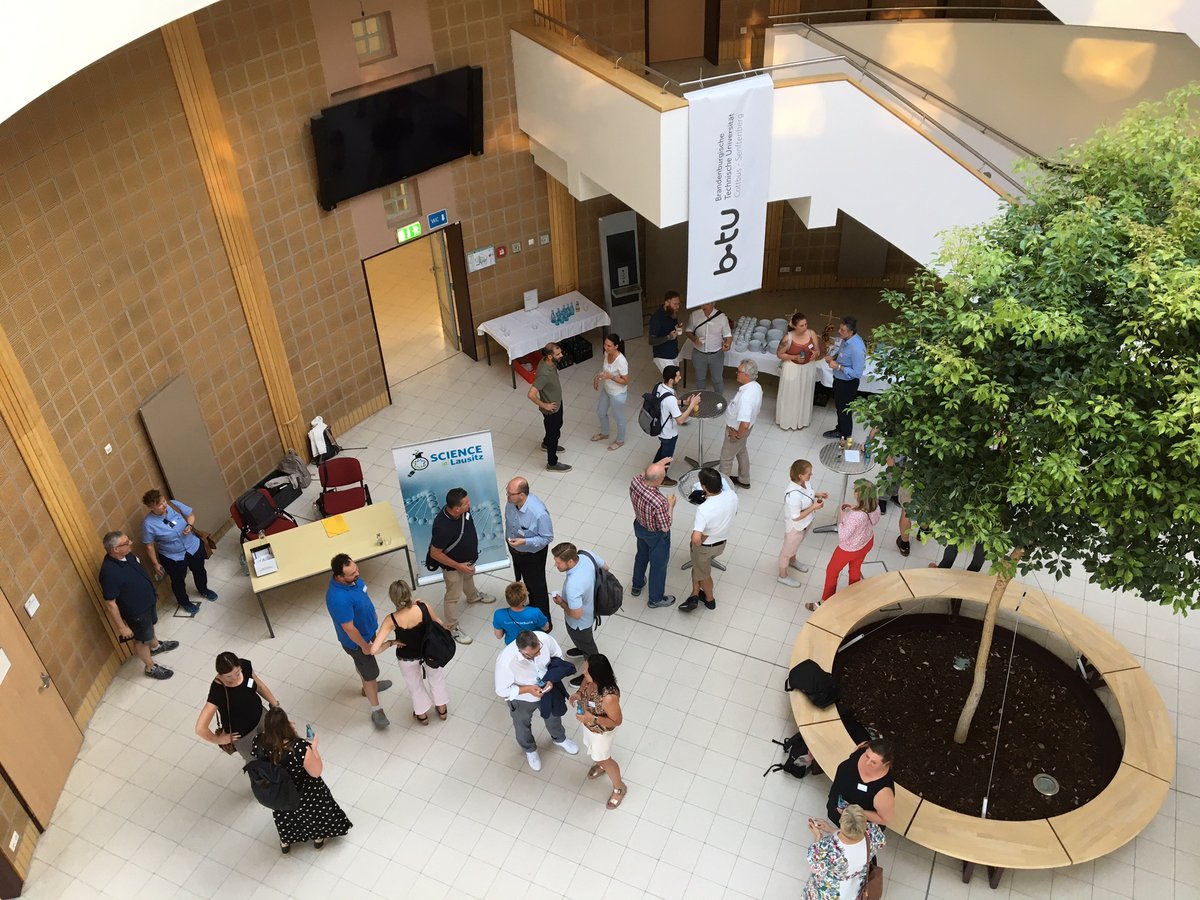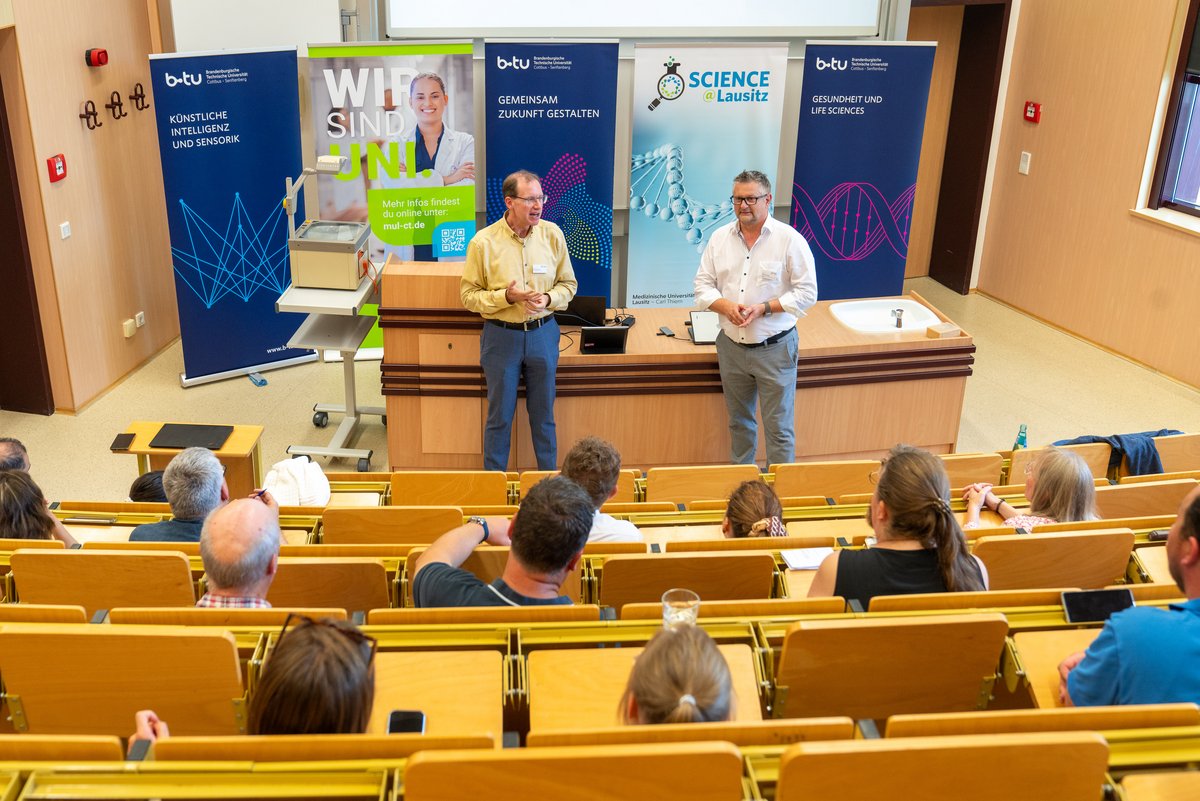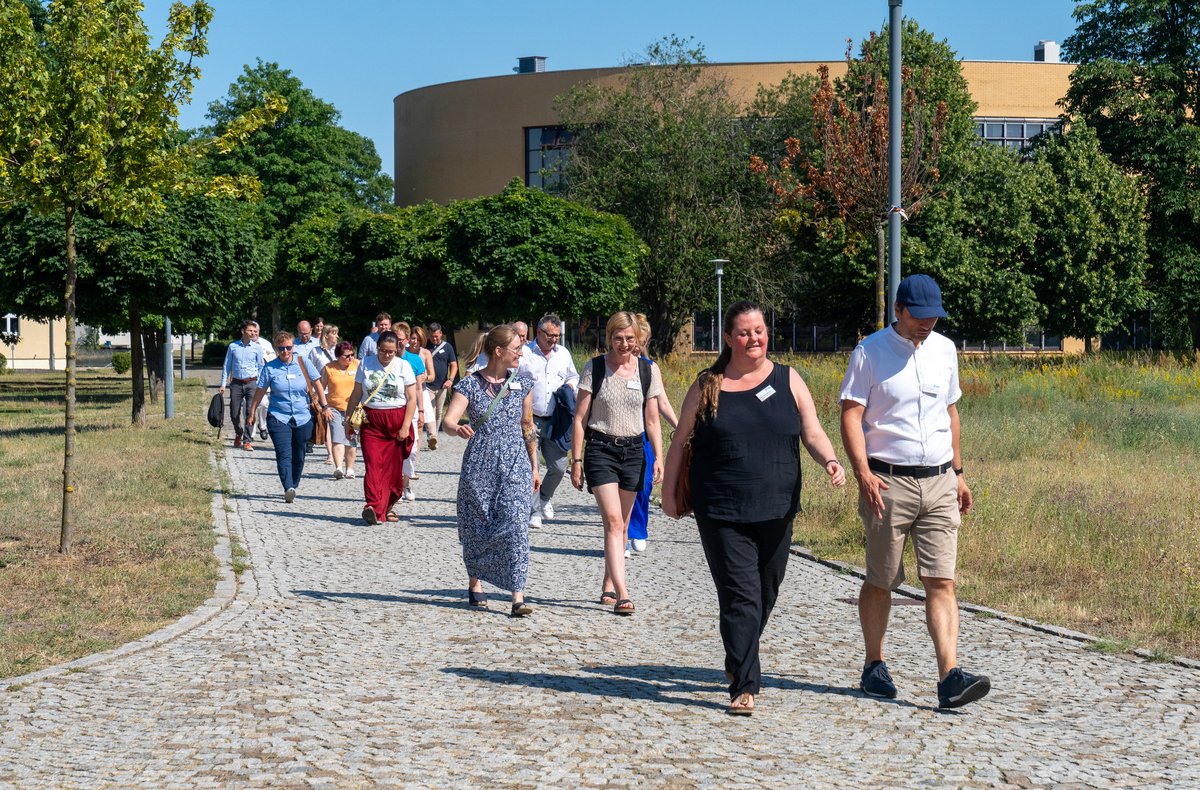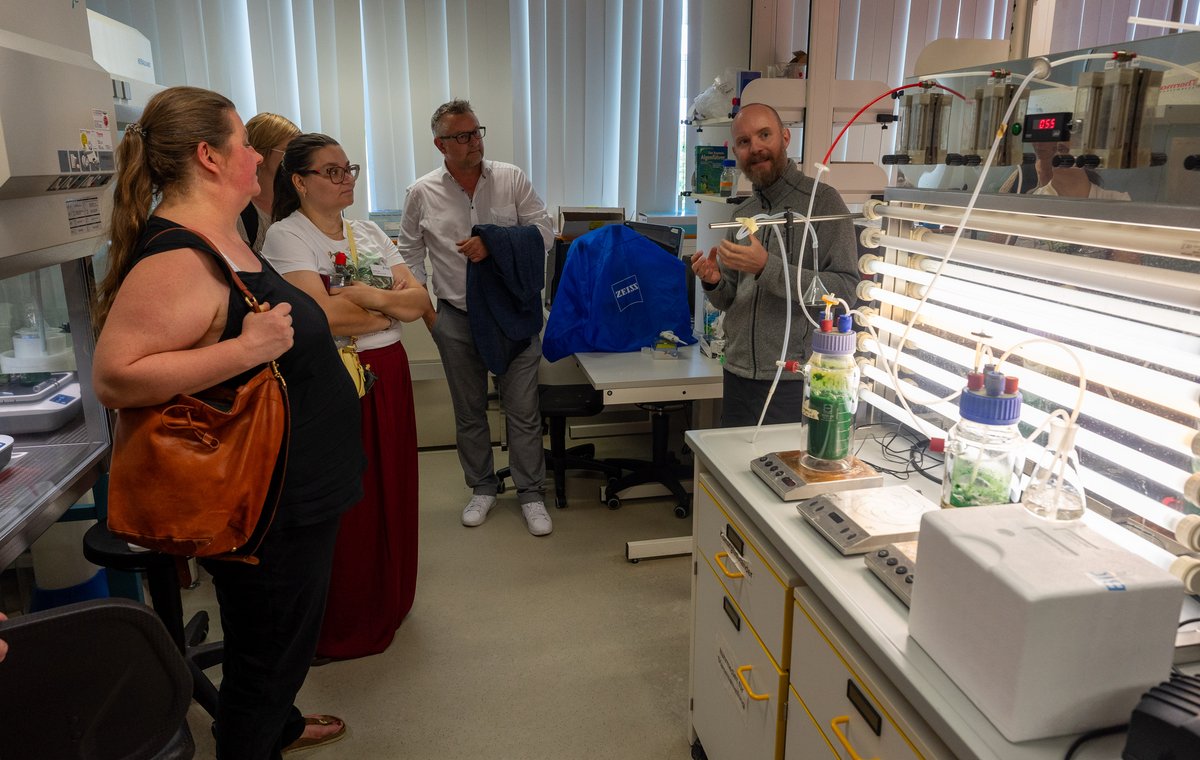Heart health and digitalisation in science and medical practice
The second event in the series on Wednesday, 2 July 2025, in Senftenberg focused on diseases of the heart and associated changes in skeletal muscle as well as pioneering digital solutions in healthcare.
Cardiology and Cell Biology for optimal healthcare
The research groups led by Dr Dirk Große Meininghaus, Head of Rhythmology, and BTU Professor Julia von Maltzahn, Chair of Stem Cell Biology of Ageing, are investigating the interaction between the heart muscle and the skeletal muscle. "Understanding these interactions is essential, especially in the development and treatment of heart diseases, for example to ensure optimal care for patients," summarises the scientist. "Our two research groups combine clinical cardiology studies with basic research in cell biology and molecular biology."
Implementation, validation and monitoring of medical diagnostic systems
Digital solutions in healthcare are becoming increasingly important: electronic documents are not lost, video consultations replace many a doctor's visit, secure networked systems lead to faster diagnoses. When every minute counts, emergency data can save lives. BTU Professor Leen Lambers, Chair of Practical Computer Science / Software Systems Engineering, Ahmad Albenny, Software Engineering, Data Integration Centre, and Dr Franziska Bathelt, Head of the Data Integration Centre at the Medical University of Lausitz, spoke about digitalisation in the healthcare sector.
Prof. Leen Lambers is researching software systems that support the diagnosis and treatment of sepsis. "Together with our colleagues at the Medical University of Lausitz, we are testing modelling techniques to determine and analyse requirements, to design and implement the software systems and to validate and monitor them," says Prof. Lambers. "The quality of data is also crucial in today's software technology. It is the basis for the development of increasingly autonomous and networked software systems."
BTU graduate Ahmad Albenny, who now works at the Data Integration Centre at the Medical University of Lausitz, spoke about the maturity model for digitalisation in medical practices. "Planning and monitoring the development and use of software systems in such a way that the most important quality objectives such as security, data protection and interoperability are met fascinated me," says Albenny. "My maturity model helps as a compass for digitalisation. We can use it to systematically record and evaluate the degree of digitalisation of medical practices and initiate the next development steps."
Head Franziska Bathelt explains the data strategy of the Data Integration Centre at the Medical University of Lausitz: "The quality of applications starts with the quality of the underlying data," she summarises. "What counts for us is interoperability, i.e. the ability of different software systems to be connected and communicate in a coordinated manner without the need for additional manual intervention. Data protection is also crucial."
About the event format
Science@Lausitz is a cooperation between the Brandenburg University of Technology Cottbus-Senftenberg and the Medical University of Lusatia - Carl Thiem. The exchange on joint, pioneering research projects relating to medicine, healthcare and digitalisation is the cornerstone for successful cooperation. The Science@Lausitz events take place twice per semester.




